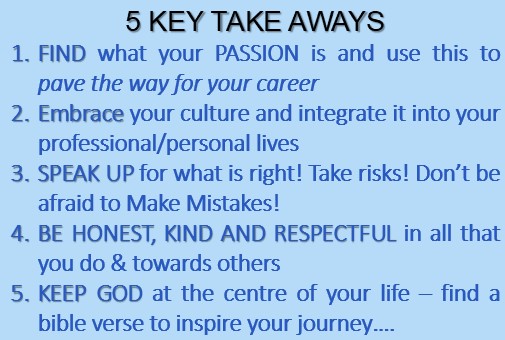Inspiring Pasifika’s future talent, by
A’eau Agnes Taimane Tuiai-Aruwafu
PASAI’s Director Technical Support
When I graduated from University of Queensland’s (UQ) St Lucia campus in 1991 at the tender age of 20, I was still trying to get used to the culture and my new environment after migrating to Brisbane from Auckland NZ in 1988. In particular, I was probably the only Pacific Islander attending UQ in 1989 so I always felt isolated.
But how times have changed. Fast track to 2018, and there is now a well-established South Pacific Islander Association (SPIA) at UQ (which was founded by my niece) with a very powerful mission statement:
“To strengthen the presence of and empower Pacific Islanders on and off-campus at the University of Queensland and to create a network of old, new, existing and potential students in the university of Pacific Islander and non-Pacific Islander background; to recognise and celebrate the rich and diverse cultures of the Pacific; to be involved in the wider community.”
I was approached to be an industry speaker on 28th September 2018 at the UQ SPIA student summit called INSPIA. A Pasifika take on the word ‘inspire’, the theme of the day was “To inspire is to fill someone with the urge or ability to do or feel something, especially to do something creative.” The aim was for Maori and Pacific Islander High School Students to attend this one day summit held at UQ St Lucia to hear from past and present students including myself, and be part of workshops throughout the day.
Among the speakers were present/past Pasifika graduates of UQ or QUT or Griffith University, who talked about the challenges of university life and shared their recent experiences of the transition from high school to university to the workplace. We heard from a Tongan student currently studying for a Bachelor of Film in the art of cinematography, a Samoan QUT graduate who studied a double degree attaining a Bachelors of Justice and Behavioural Science (Psychology) majoring in Criminology and Policing, a Papua New Guinean who just completed her Masters in Development Practice, (majoring in Community Development), and a Samoan in his final 4th year studying a Bachelor in urban and environmental planning at Griffith University.
Although I have just received my Master’s (International and Community Development), I wasn’t there as a new graduate like these other speakers. With over 18 years of industry experience in Australia for private and public sector organisations and almost 6 years in international development in the Pacific Islands, it was challenging trying to summarise what I do, where I’ve been and how I got there in 10 minutes.Nevertheless, I delivered a presentation including the PASAI journey video, which I hope inspired these upcoming young professionals and potential tertiary students to think about making a difference in the future.
After further reflection on my past and journey to where I am, I came up with my five key takeaways:
I was asked a very interesting question by a participant, which I believe reflected a real struggle for many of the young Pacific Island generation of today: “How do you mix the two cultures – our Pacific Island and western culture?’
I’m not sure I answered her question fully, but in the end the answer, for me, lies with our faith in God. It was difficult for the students to fathom this because they are living in a society which is politically correct and sensitive about religious connotations. However, we have to remember where we come from, and many Pacific Islanders are taught from the day they are born about Christianity and God.
As I left the grounds of the Great Court at UQ (iconic infrastructure) with my family, husband and 6 month old twin girls, I reflected on how a couple of decades ago I was single and had no direction or career ambition. Now I’m happily married with two children and passionate about the work I do in the pacific with PASAI.
During my journey I’ve been able to understand and appreciate and be proud of my cultural background and integrate that into my westernised professional life. I have gained the best of both worlds: working in the Australian workforce (both private and public sectors) and remaining committed to my Samoan heritage, family, village and church community.
This unique upbringing has served me well in my profession, and I encourage all Pacific Islanders to embrace your cultures!
I really enjoyed being a part of this Summit because in the end it was just an extension of what I love to do in the Pacific region – to empower, encourage, motivate and capacity build the future auditors of the Pacific region to make a difference in the lives of our Pasifika people.
A’eau Agnes Taimane Tuiai-Aruwafu is PASAI’s Director Technical Support has over 20 years of industry experience in public sector auditing both in Australian State/Federal Government and internationally within the Pacific Region. Skilled in strategic management, international development, project management, capacity building and public financial management, she continues her passion to make a difference in the Pacific. She recently graduated with a Masters International and Community Development (Deakin) and completed a Bachelor of Economics and Bachelor of Business in Accounting from UQ and QUT respectively. She is a Certified Practising Accounting from CPA Australia and was awarded a Jane M Klausman Woman in Business Award in 2013 from Zonta NZ. She is an active and devoted member of her Samoan community in Brisbane, Australia and her extended family in Samoa/NZ, and in 2016 she was bestowed the honour of the Samoan High Chief Title of A’eau to represent the Falealupo District, Savaii, Samoa.



















